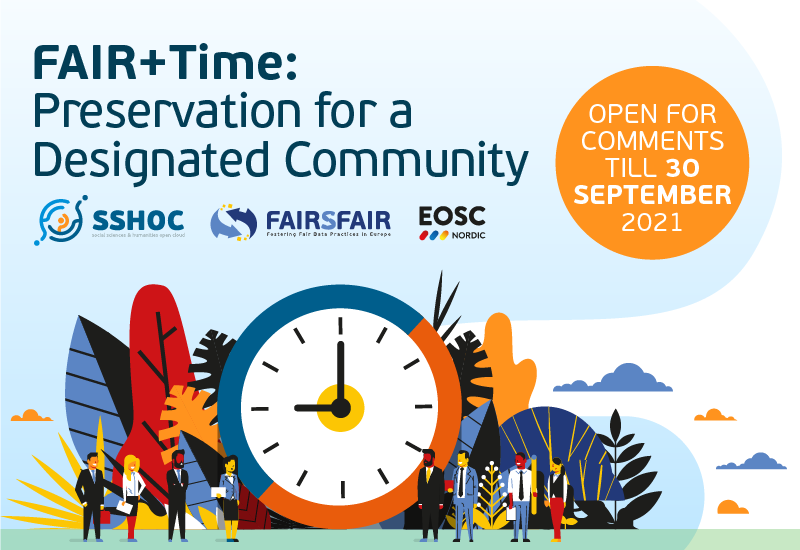
- Social Sciences & Humanities Open Cloud
EOSC-NORDIC, FAIRsFAIR and SSHOC working paper open for public comments

Date:
06 July 2021
FAIR + Time: Preservation for a Designated Community
Digital objects are inextricably dependent on their context, the infrastructure of people, processes, and technology that care for them. The FAIR Principles are at the heart of the data ecosystem, but they do not specify how digital objects are made FAIR or for how long they should be kept FAIR. This perspective is provided by the Trustworthy Digital Repository (TDR) requirements by defining long-term digital object preservation expectations. We’re all doing something for someone, and to deliver an effective service at scale, we need a sense of the types of users we have and how we can meet their needs, also in the future.
FAIRsFAIR, SSHOC, and EOSC Nordic are all supporting digital repositories in their journey to achieve TDR status. When sharing experiences, the project teams found out that two fundamental TDR concepts are not always easy to understand: preservation and Designated Community. The draft working paper FAIR + Time: Preservation for a Designated Community was prepared in collaboration with the three projects. It seeks to present key concepts and expand on them to specify the standards and assessments required for an interoperable ecosystem of FAIR (findable, accessible, interoperable and reusable) data preserved for the long term in generalist and specialist FAIR-enabling trustworthy digital repositories (TDR) for a defined designated community of users. It seeks to provide context and define these concepts for audiences familiar with research data and technical data management systems but with less direct experience of digital preservation and trustworthy digital repositories. This is intended to help clarify which organisations are potential candidates to receive CoreTrustSeal TDR status and identify and support the types of organisations that may not be candidates but play a vital role in the data ecosystem.
Open for public comments till 30 September
Read the full paper here.
A public comment version is available in Google Document Format.
Catalogue:
Improved and FAIR data Repositories - SSHOC Trusted Repositories (SSHOC Trust Support)
